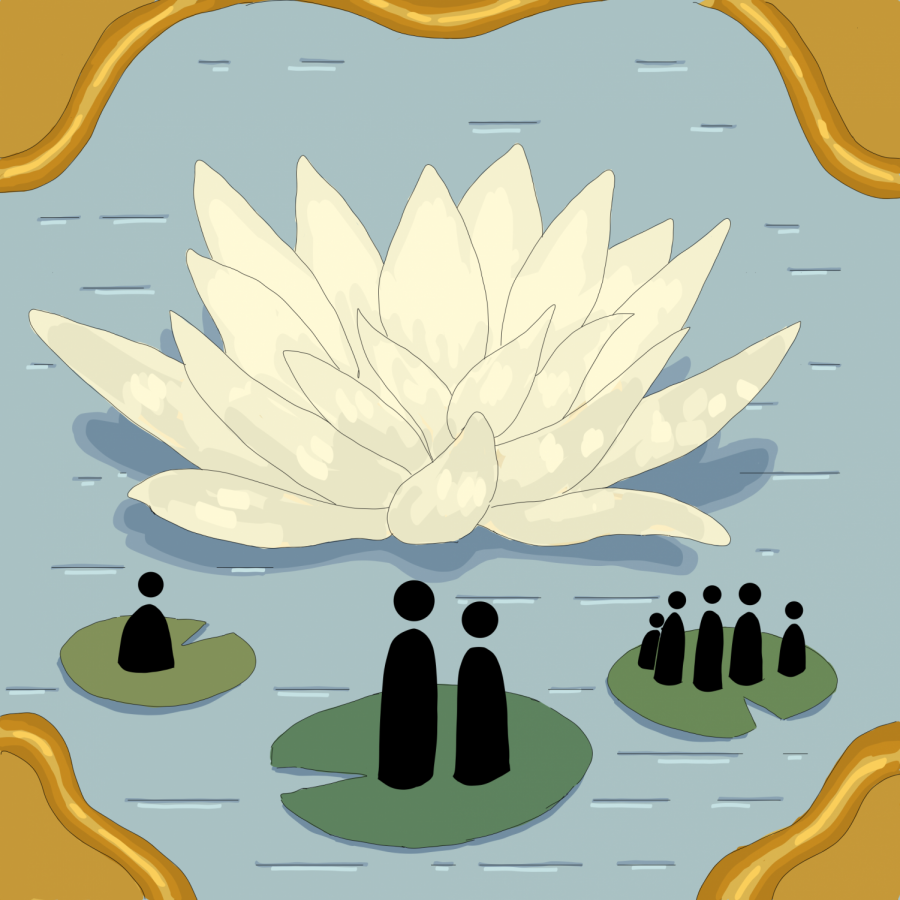Sinister and Tragic, The White Lotus Offers Class Commentary
October 3, 2021
Rating: 4/5 Falcons
The White Lotus, one of HBO’s most recent shows, has become a fast favorite. After the show’s initial release in July, it drew millions of viewers, receiving undying praise. Approved for a second season before the first season finale even aired, it is worth the hype.
One of the first scenes shows a peek into what awaits: a collection of tourists—all white, all American, all rich—first connect with the slightly less homogeneous staff of the resort. The rest of the series follows four separate tales of a “paradise” vacation on a remote island in Hawaii. Among them are a newly-wed couple navigating the tense waters of marriage, a family of five causing trouble behind the back of their tech-mogul mother and wife, and finally, Jennifer Coolidge as the eccentric Ms. McQuoid, still reeling from her mother’s recent passing. The show also features the perspectives of the staff of the White Lotus resort: passing employees, bus boys, and the troubled, increasingly volatile manager, Armond.
While class juxtaposition is far from groundbreaking in recent cinema, The White Lotus takes on a new tone. Phrases like “tragicomedy” and “sinister satire” reflect director and writer Mike White’s often offputting mix of discomfiting humor and the dark murder suspense that HBO specials are known and loved for. The deliberate examination of characters’ lives gives the feel of a classic slow burn—while the show’s opening hints at a death during their stay, it is more of a looming threat than an actual plot point.
The show’s refreshing bluntness in displaying the discrepancies between guest and employee allows blissful hate of each and every character, albeit some more often severely than others. For example, Ms. McQuoid, while oddly loveable, develops a relationship with a spa worker, only to cut her off once she’s found someone more to her liking. Much like the lack of a single linear plot, character development is almost nonexistent; Ms.McQuiod’s obnoxious entitlement stays true to the end. White is able to ridicule, mock, and develop the exaggerated cliche personalities of his characters in ways that dig deeper and more authentically into issues surrounding social classes than he initially lets on, most notably through unfiltered dialogue. For example, confrontation between a struggling journalist and her mother-in-law who truly doesn’t believe a married woman should work, or an indigenous teenager facing the consequences of a spoiled, “woke” young girl’s political agenda. The lack of subtlety feels far more real, and far more familiar in the polarized world of today.
This genreless gem stands out in a time of a seemingly unlimited number of limited series. The White Lotus is an amplified look at the disturbing and comedic nature of American class and society, all against a tropical backdrop. What else could you ask for?
This piece also appears in our September 2021 print edition.










